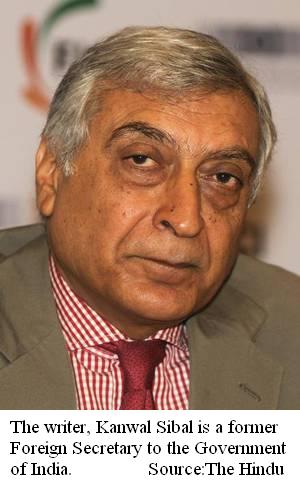|
||||||||
|
|
|
2018-08-16 ArtNo.46315
◆Will Imran Khan’s win further set back Indo-Pak ties?
 【New Delhi】Several issues account for the dismal state of India-Pakistan relations: the wounds of Partition, the chronic Kashmir issue, four armed conflicts, jihadi terrorism against India, the increasing radicalisation of Pakistani society, water-related differences, Islamabad’s nuclear posture, the military-civilian equation in Pakistan and the Army’s control over policymaking towards India. In the last seven decades, Pakistan has experienced both civilian governments and direct military rule but bilateral relations have remained inimical, notwithstanding periodic exchanges at the highest political level, signing of agreements and declarations, structured dialogue at functional levels, back-channel contacts, and so on. Against this background, Imran Khan’s victory not only holds no hope of improved understanding, but will also make the handling of bilateral ties more difficult. The Pakistani military and the Inter-Services Intelligence have paved the way for Mr. Khan’s victory. They did this by first backing Mr. Khan’s street protests against former Prime Minister Nawaz Sharif, then manipulating the Pakistani judiciary to dislodge Mr. Sharif from his prime ministership on corruption charges and imprison him, and then dividing the conservative vote bank of the Pakistan Muslim League (Nawaz) by engineering the participation of several extremist religious groups in the election, and pressuring the media. Mr. Khan has been denied an absolute majority and will therefore do the bidding of the Pakistani military on India much more than Mr. Sharif. The former Prime Minsiter, despite his rancour against the military, launched tirades against India on Kashmir, did not accelerate the trial of those responsible for the Mumbai terrorist attacks, did not investigate properly the involvement of Pakistani jihadis in the Uri assault, and did not deliver on trade issues. Unsurprisingly, Mr. Khan, while addressing the nation, focussed primarily on resolving the Kashmir issue in accordance with UN resolutions. His declaration — that if India moved one step, Pakistan would move two — was intended to put the ball in India’s court. However, what is unclear is what that first step is that Mr. Khan expects from India. India has made eschewing of terrorism essential for resuming dialogue. Mr. Khan will have to curb jihadi groups (and particularly Hafiz Saeed) if he means business. But this will not happen because of his known links to extremist religious groups, and the establishment’s strategic purpose of politically mainstreaming jihadi organisations. Mr. Khan’s Afghanistan policy can be expected to put Islamabad even more at odds with India’s interests there. Economic development and poverty alleviation through beneficial mutual trade exchanges are banalities that we have heard before. That Mr. Khan looks to the Medina model for Pakistan’s economic well-being shows a deep and complicating Islamic outlook. A serious move to expand trade ties will inevitably bring in issues of India’s connectivity to Afghanistan and Central Asia with serious implications for Pakistan’s existing strategy to impede India’s links to that region. Mr. Khan’s swipes at Prime Minister Narendra Modi and his belief that India favoured Mr. Sharif over him will be unhelpful for bilateral ties. Moreover, neither he nor the Pakistani military will want to seriously move forward with India, especially on terrorism, as that would give India a diplomatic victory that would boost the BJP’s electoral prospects in 2019. A leadership change in Islamabad and Mr. Khan’s cliched remarks are no reason for India to engage in wishful thinking about the possibility of holding a productive dialogue with Pakistan. Kanwal Sibal is a former Foreign Secretary to the Government of India 【News source】 Will Imran Khan’s win further set back Indo-Pak ties? ○One world:The aim of SEAnews |
|
[Your Comments / Unsubscribe]/[您的意见/退订]/[ご意見/配信停止]
Please do not directly reply to the e-mail address which is used for delivering the newsletter. 请别用递送新闻的邮件地址而直接回信。 メールをお届けした送信専用アドレスには返信しないで下さい。 |